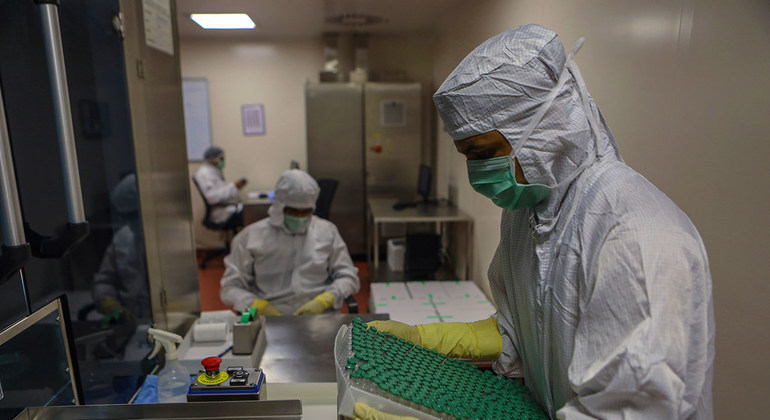
Mandela University has a strong Health Sciences faculty, which has many initiatives that serve the SDGs, including:
The Mandela University Medical School
The exciting new Mandela University Medical School will offer a much-needed increase in the number of doctors entering the health care sector each year. This increase in medical doctors will serve to support and improve the health services by increasing both its capacity and reach. The medical school also offers opportunities for research initiatives that serve to improve health and wellbeing.
In addition to supporting SDG 3, Good health and Wellbeing, the medical school will be using an innovative, transformative, distributive teaching model with an emphasis on comprehensive primary health care as well as a focus on leveraging the benefits of technology to deliver effective health professions education. In addition, an interprofessional approach that will see students come together to study across health science disciplines towards their service to society, especially within the metro is being developed. The transformative interprofessional education model (IPE) will see doctors work and study alongside nurses, radiographers, psychologists, environmental health practitioners, pharmacists, emergency medical care students and the like, to offer holistic and integrated health care. This approach to teaching supports several of the SDGs relating to education, innovation, partnership and collaboration, and the increased resources within the healthcare sector will serve to mitigate some of the current inequalities that we see in the South African Health Care Sector.
Local Production of Key Generic Drugs
Professor Paul Watts, holder of the SARChI Chair in Microfluidic Bio/Chemical Processing, has been leading a Mandela University project that is focused on the local production of key generic drugs for major diseases in South Africa and Africa. This project could save billions, while establishing a new manufacturing industry and creating jobs. It also serves to improve equal access to life-saving medical resources and promote health and wellbeing in South African communities.